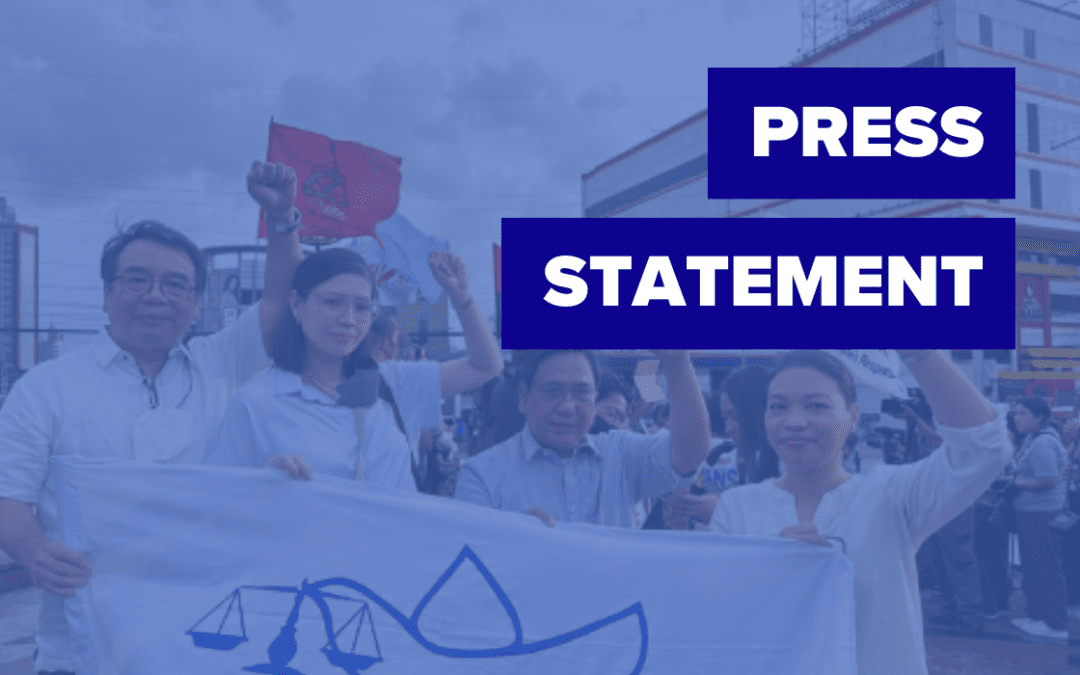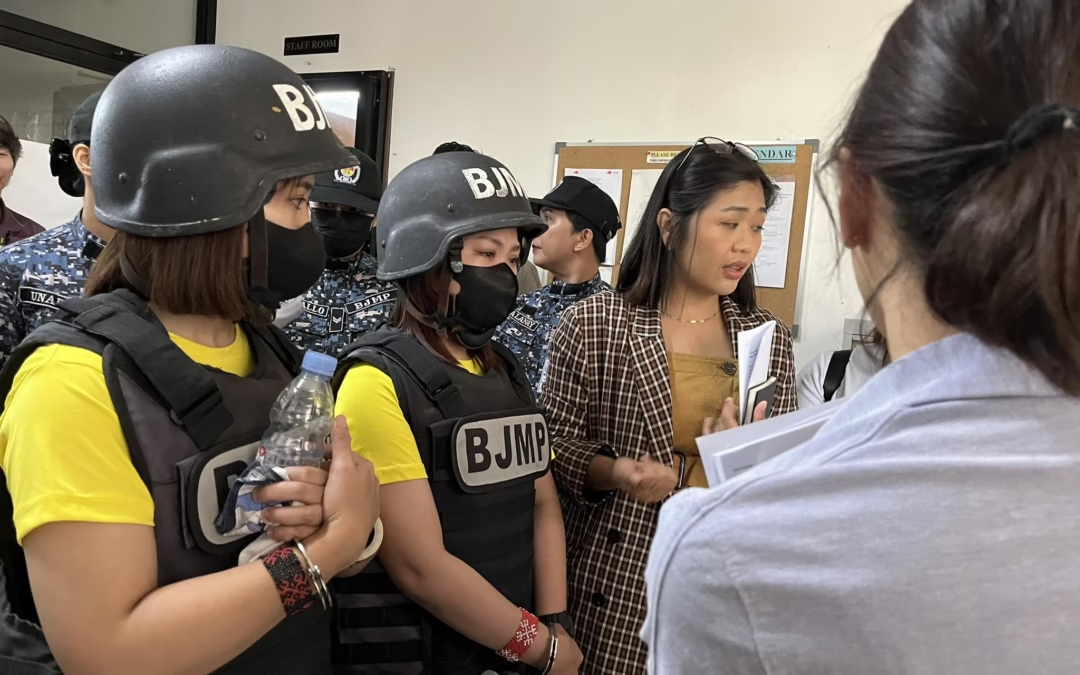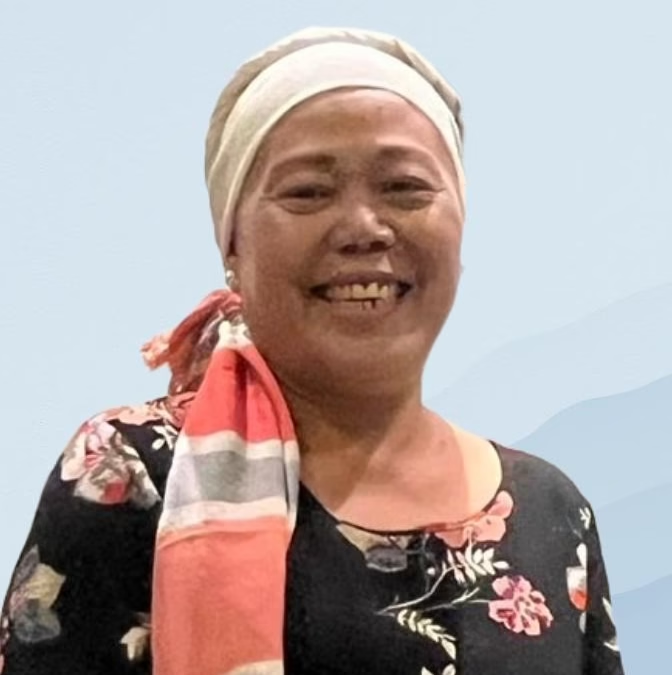PRESS RELEASE
November 8, 2024
MANILA, Philippines — In defiance of the prevailing culture of impunity in the Philippines, the families of Bloody Sunday victims Emmanuel Asuncion, Ana Mariz Lemita-Evangelista, and Ariel Evangelista filed complaints* today with the United Nations Human Rights Committee (UN HRC), invoking the complaint procedure of the International Covenant on Civil and Political Rights (ICCPR). The complaints, lodged by Liezel Asuncion and Rosenda Lemita, seek accountability for the extrajudicial killings of their loved ones during coordinated police operations on March 7, 2021—incidents emblematic of the Philippine government’s violent crackdown on dissenters.
The Bloody Sunday raids, which resulted deaths of nine activists across Southern Tagalog, were part of a larger police operation called “COPLAN ASVAL” led by then-Regional Chief of the PNP CIDG Regional Field Unit 4A and “Davao boy,” PCOL Lito E. Patay. Police falsely labeled the victims as members of “Communist Terrorist Groups” (CTGs) and claimed that they fought back or resisted arrest after the search of their homes and offices allegedly yielded firearms, ammunition, and explosives. However, witnesses, including the victims’ family members, testified that no such search occurred and described how police surrounded and subdued the victims at gunpoint moments before killing them.
Asuncion and Lemita stress in their complaints how the police, under the guise of lawful operations, invoked the “nanlaban” justification pursuant to President Rodrigo Duterte’s directives to “forget about human rights” and “kill” suspected communist rebels. They argue that the legal facade of COPLAN ASVAL operations—through search warrants, fabricated evidence, and staged crime scenes—has enabled a pattern of targeted executions against unarmed activists like labor leader Manny Asuncion and fisherfolk rights defenders Ana Mariz Lemita-Evangelista and Ariel Evangelista.
The families’ unresolved grievances have forced them to turn to the UN HRC in search of accountability. “Domestic remedies have been exhausted,” said Atty. Josalee S. Deinla, NUPL Secretary General, “not because we have not tried, but because there has been no commitment from this government to address these murders. What we see is a system designed to deflect, delay, and deny justice.”
The cases were referred to the DOJ’s Administrative Order No. 35 (AO 35) mechanism on political killings and were touted as the Philippine government’s “commitment” to hold erring law enforcement officers accountable for “excessive actions in the field.” But the panel of prosecutors dismissed the murder complaints filed by Asuncion and Lemita for insufficiency of evidence instead of further investigating them or subjecting them to case-buildup, contrary to the DOJ’s own policies on heinous crimes and capital offenses.
The complaints submitted by Asuncion and Lemita enumerate multiple ICCPR violations, including the right to life, security, and effective remedies. According to Atty. Deinla, “This filing with the UN isn’t just about the individuals who died. It’s a stand against the system that permits, even encourages, the summary executions of rights defenders and dissenters. The government’s insistence on ‘legitimate police operations’ as a defense does not conceal what these actions really are—intentional murders masquerading as law enforcement.”
Key elements of COPLAN ASVAL, as detailed in the complaints, indicate a premeditated design to kill under the cover of legitimate police operations. On March 5, 2021, just days before the raids, then-President Duterte issued an explicit order to security forces to eliminate communist rebels, which extended de facto permission for attacks on civilians labeled as “CTGs.” To date, no police officer involved has faced criminal charges despite strong evidence not only of misconduct but intent to kill.
Adding to the injustice was the COPLAN ASVAL’s official After-Operation Report recommending that officers responsible for the deaths receive commendations for “exceptional performance.” Deinla noted, “Treating these deaths as operational successes is a deeply alarming signal from the State. It conveys to all members of the security forces that they can kill unarmed civilians and be rewarded. This is nothing less than State-sanctioned violence.”
Asuncion and Lemita hope that the UN Human Rights Committee will urge the Philippine government to abandon its protective stance toward law enforcement, fulfill its international obligations, and deliver justice for the families of Bloody Sunday victims. ###
Reference:
Atty. Josalee S. Deinla
NUPL Secretary General
+639174316396
*Copies of the complaints are available upon request.



